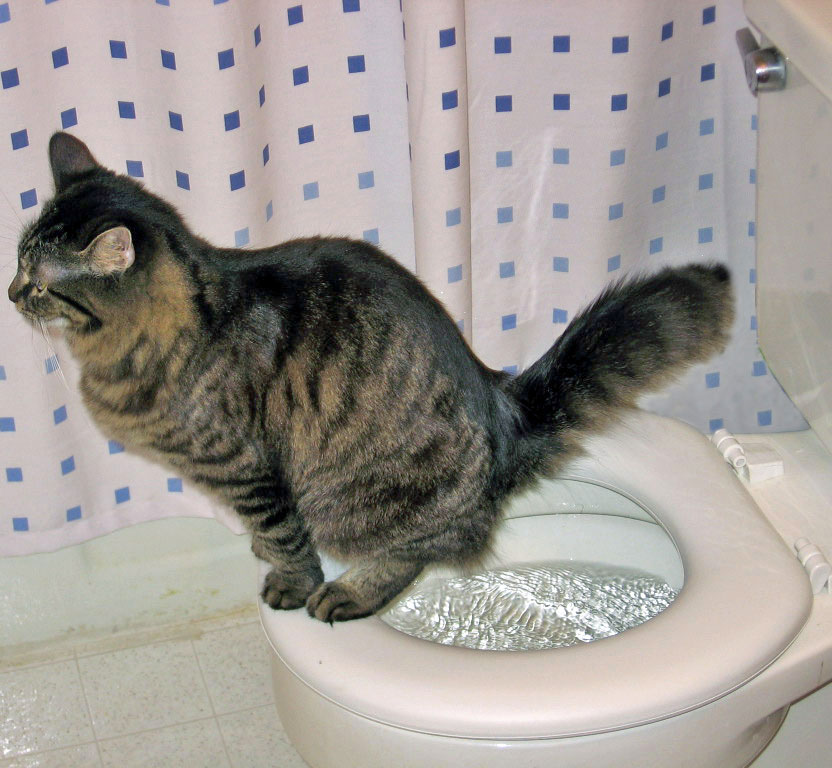The Consequences of Flushing Cat Poop Down Your Toilet - Safeguard Your Plumbing
The Consequences of Flushing Cat Poop Down Your Toilet - Safeguard Your Plumbing
Blog Article
Just about every person seems to have their private opinion about How to Dispose of Cat Poop and Litter Without Plastic Bags.

Intro
As pet cat proprietors, it's essential to bear in mind exactly how we take care of our feline friends' waste. While it may appear hassle-free to purge feline poop down the toilet, this method can have detrimental repercussions for both the atmosphere and human wellness.
Alternatives to Flushing
Fortunately, there are safer and extra responsible methods to deal with feline poop. Think about the adhering to alternatives:
1. Scoop and Dispose in Trash
The most typical technique of taking care of cat poop is to scoop it into a biodegradable bag and toss it in the garbage. Make certain to utilize a devoted trash scoop and get rid of the waste quickly.
2. Use Biodegradable Litter
Opt for biodegradable cat litter made from materials such as corn or wheat. These litters are environmentally friendly and can be safely dealt with in the trash.
3. Bury in the Yard
If you have a backyard, think about burying pet cat waste in a marked area away from vegetable gardens and water resources. Make certain to dig deep adequate to stop contamination of groundwater.
4. Mount a Pet Waste Disposal System
Purchase an animal waste disposal system specifically designed for cat waste. These systems utilize enzymes to break down the waste, lowering odor and environmental impact.
Wellness Risks
In addition to environmental concerns, flushing pet cat waste can also present wellness threats to humans. Cat feces might have Toxoplasma gondii, a parasite that can cause toxoplasmosis-- a possibly severe health problem, particularly for expectant women and individuals with damaged immune systems.
Environmental Impact
Purging cat poop introduces harmful microorganisms and bloodsuckers right into the supply of water, posturing a significant risk to aquatic communities. These impurities can adversely impact aquatic life and concession water high quality.
Conclusion
Responsible family pet ownership extends past offering food and sanctuary-- it additionally includes appropriate waste monitoring. By refraining from flushing pet cat poop down the commode and going with alternative disposal techniques, we can decrease our ecological footprint and protect human health and wellness.
Why You Should Never Flush Cat Poop Down the Toilet
A rose by any other name might smell as sweet, but not all poop is created equal. Toilets, and our sewage systems, are designed for human excrement, not animal waste. It might seem like it couldn’t hurt to toss cat feces into the loo, but it’s not a good idea to flush cat poop in the toilet.
First and foremost, assuming your cat uses a litter box, any waste is going to have litter on it. And even the smallest amount of litter can wreak havoc on plumbing.
Over time, small amounts build up, filling up your septic system. Most litter sold today is clumping; it is made from a type of clay that hardens when it gets wet. Ever tried to scrape old clumps from the bottom of a litter box? You know just how cement-hard it can get!
Now imagine just a small clump of that stuck in your pipes. A simple de-clogger like Drano isn’t going to cut it. And that means it’s going to cost you big time to fix it.
Parasitic Contamination
Believe it or not, your healthy kitty may be harboring a nasty parasite. Only cats excrete Toxoplasma in their feces. Yet it rarely causes serious health issues in the cats that are infected. Most people will be fine too if infected. Only pregnant women and people with compromised immune systems are at risk. (If you’ve ever heard how women who are expecting are excused from litter cleaning duty, Toxoplasma is why.)
But other animals may have a problem if infected with the parasite. And human water treatment systems aren’t designed to handle it. As a result, the systems don’t remove the parasite before discharging wastewater into local waterways. Fish, shellfish, and other marine life — otters in particular — are susceptible to toxoplasma. If exposed, most will end up with brain damage and many will die.
Depending on the species of fish, they may end up on someone’s fish hook and, ultimately on someone’s dinner plate. If that someone has a chronic illness, they’re at risk.
Skip the Toilet Training
We know there are folks out there who like to toilet train their cats. And we give them props, it takes a lot of work. But thanks to the toxoplasma, it’s not a good idea.

Hopefully you enjoyed our article on Can You Flush Cat Poop Down The Toilet?. Thank you for taking a few minutes to read our posting. Sharing is caring. Helping others is fun. Many thanks for your time invested reading it.
Give Me A Quote! Report this page